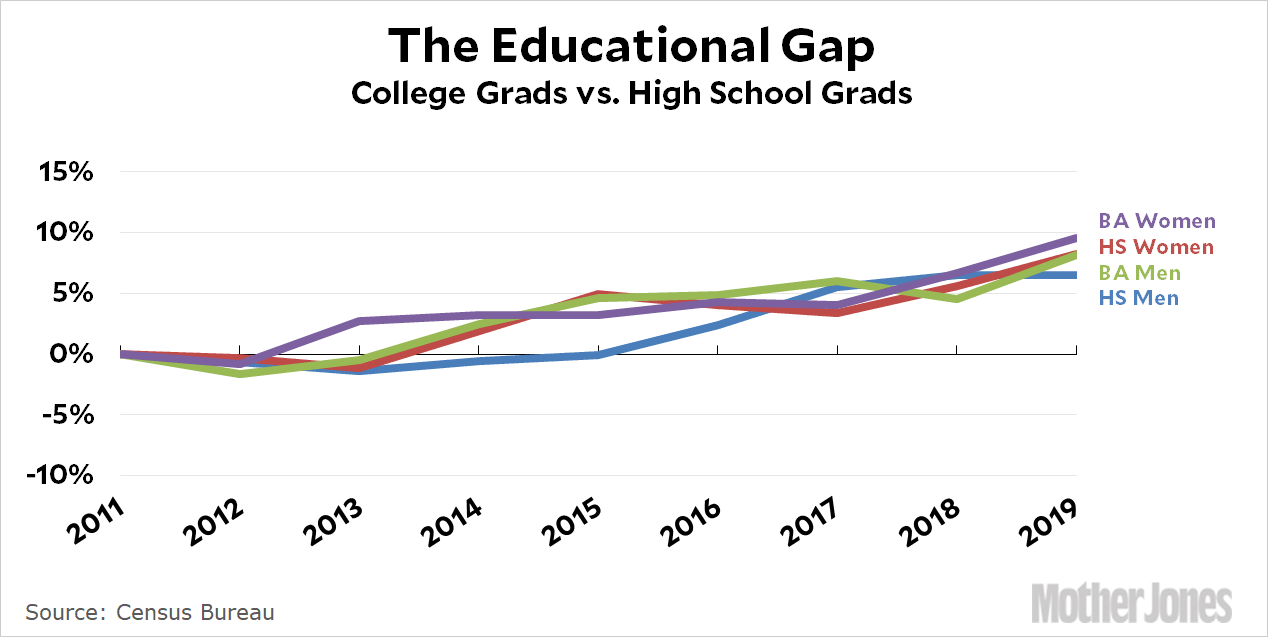Today the New York Times points to a recent study suggesting that lots of people are qualified for jobs which would pay them way more than they’re making now. That’s probably true, and I don’t have any beef with it. However, the study’s abstract starts out like this:
The demand for a skilled workforce is increasing even faster than the supply of workers with college degrees – the result: rising wage inequality by education levels, and firms facing a skills gap.
This has been on my mind for a while, but I’ve never bothered writing about it before now. The thing is, there’s no question that college grads make a lot more money than high school grads. But whenever I look at income data, that gap isn’t getting any bigger—at least not at the level of high school and bachelors degrees. (PhDs are a different case.) Here’s a chart showing income growth since the end of the Great Recession:

Over the past decade, the income of women with BAs has gone up 9.6 percent, while women with high school diplomas have increased 8.2 percent. Among men, BAs increased 8.2 percent while high school grads increased 6.5 percent. (This is all adjusted for inflation, of course.)
The income of college grads has increased more than the income of high school grads, but only by the tiniest amount. I’ve zoomed in the chart so you can see the gaps, but at any normal scale there’s virtually no difference. The gap has widened slightly more than one percentage point since the end of the recession. If you go back two decades, it looks much the same.
And yet we keep saying that the educational income gap is rising out of control. Why? As near as I can tell, it’s because this was true in the 1990s and no one has bothered to adjust what they say about it since then. What am I missing here?

















